Diners: An American Original
| Written by | Donna R. Braden |
|---|---|
| Published | 4/18/2020 |
Diners: An American Original
| Written by | Donna R. Braden |
|---|---|
| Published | 4/18/2020 |
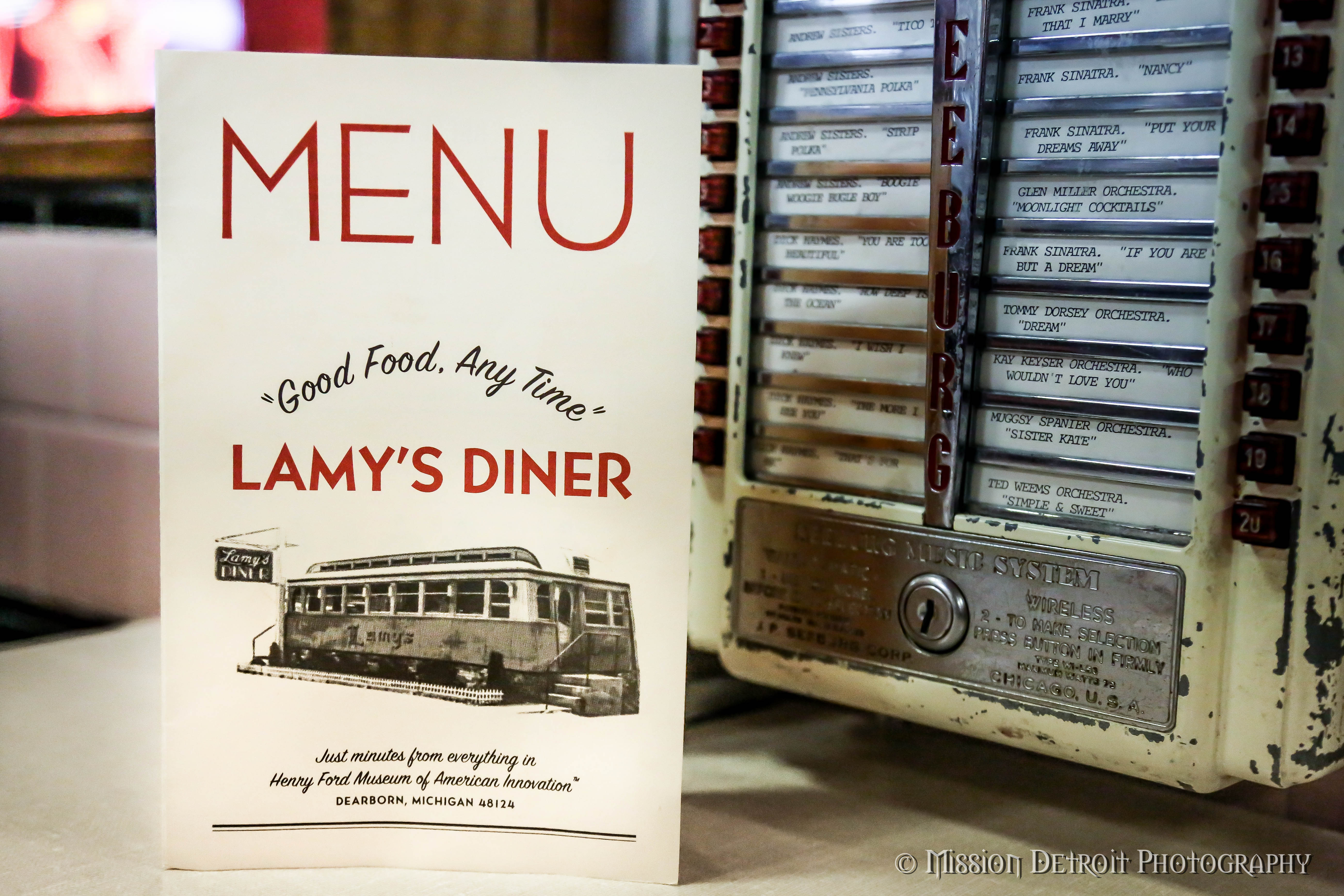
In 1984, Henry Ford Museum of American Innovation acquired an old, dilapidated diner. When Lamy’s Diner—a Massachusetts diner from 1946—was brought into the museum, it raised more than a few eyebrows. Was a common diner, from such a recent era, worthy of restoration? Was it significant enough to be in a museum?
Happily, times have changed. Diners have gained newfound respect and appreciation. A closer look at diners reveals much about their role and significance in 20th-century America.
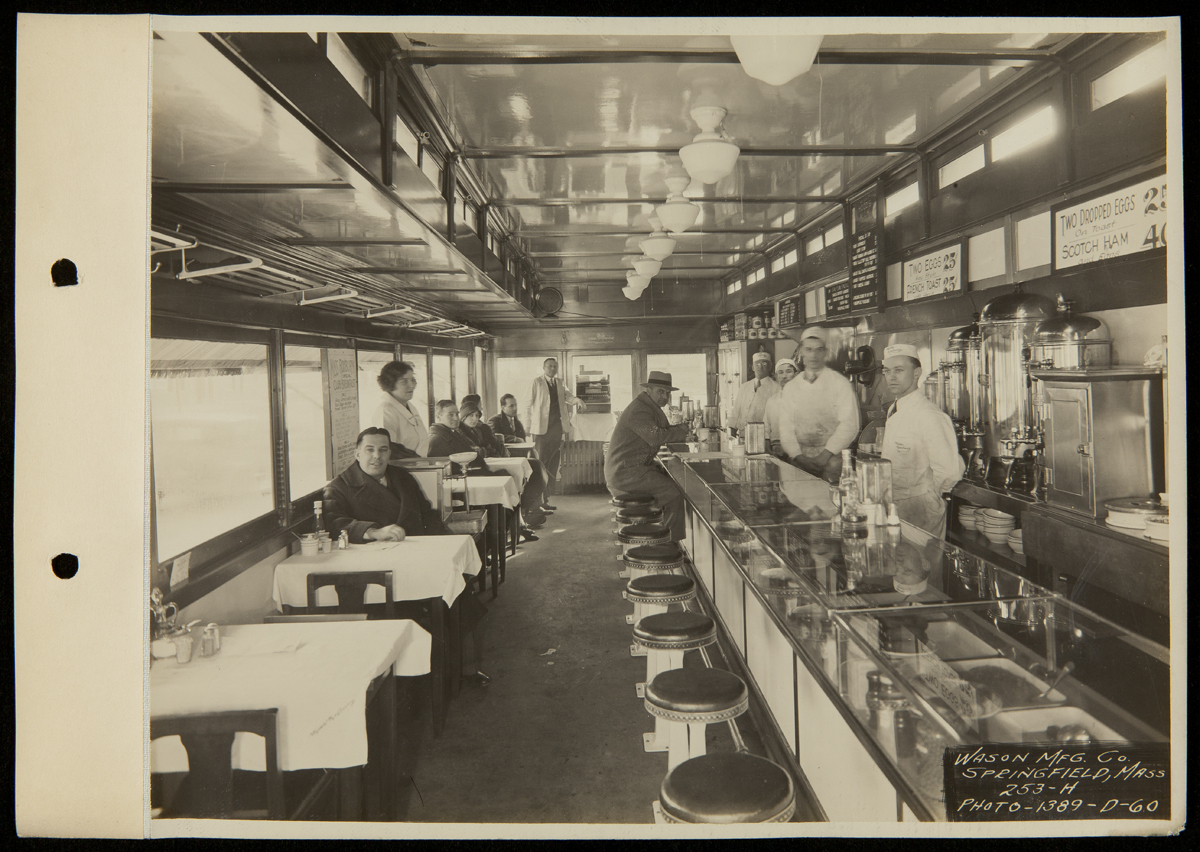
Diner, Wason Mfg. Co., interior, 1927-9. THF228034
Diners changed the way Americans thought about dining outside the home. A uniquely American invention, diners were convenient, social, and fun.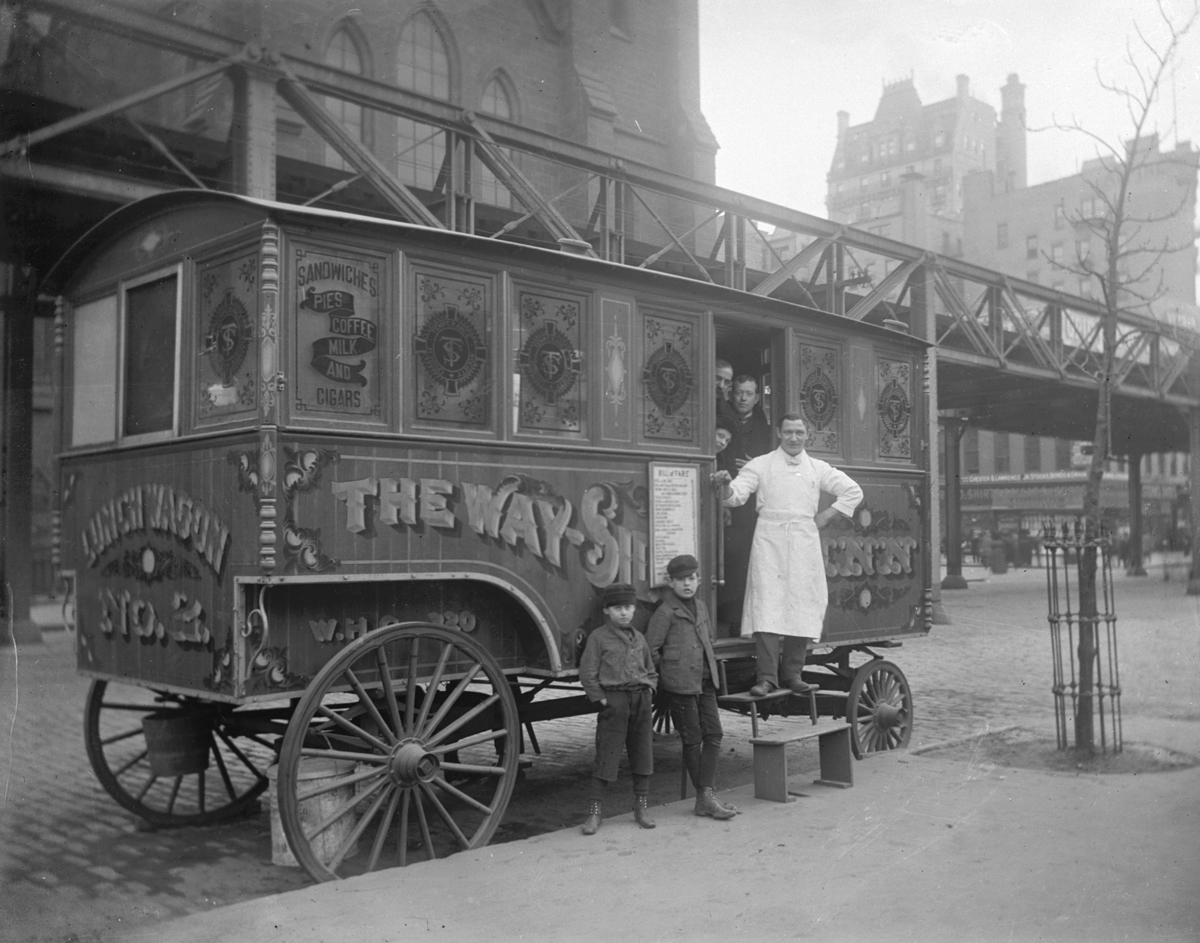
Horse-drawn lunch wagon, The Way-side Inn. THF38078
Diners originated with horse-drawn lunch wagons that came out on city streets at night, providing food to workers. They also attracted “night owls” like reporters, politicians, policemen, and supposedly even underworld characters!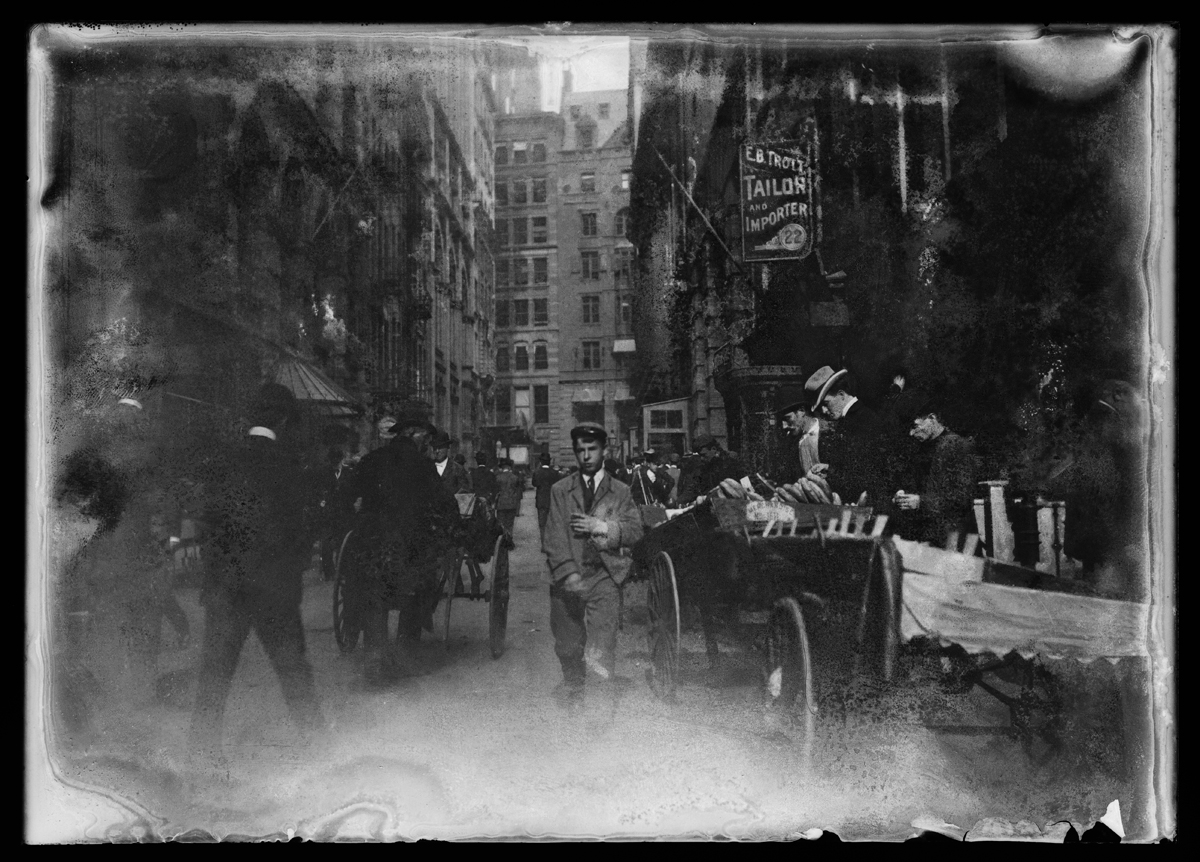
Peddler’s cart: NYC street scene, 1890-1915. THF241185
Most people agree that horse-drawn lunch wagons evolved from peddler’s carts, like those shown here on this New York City street.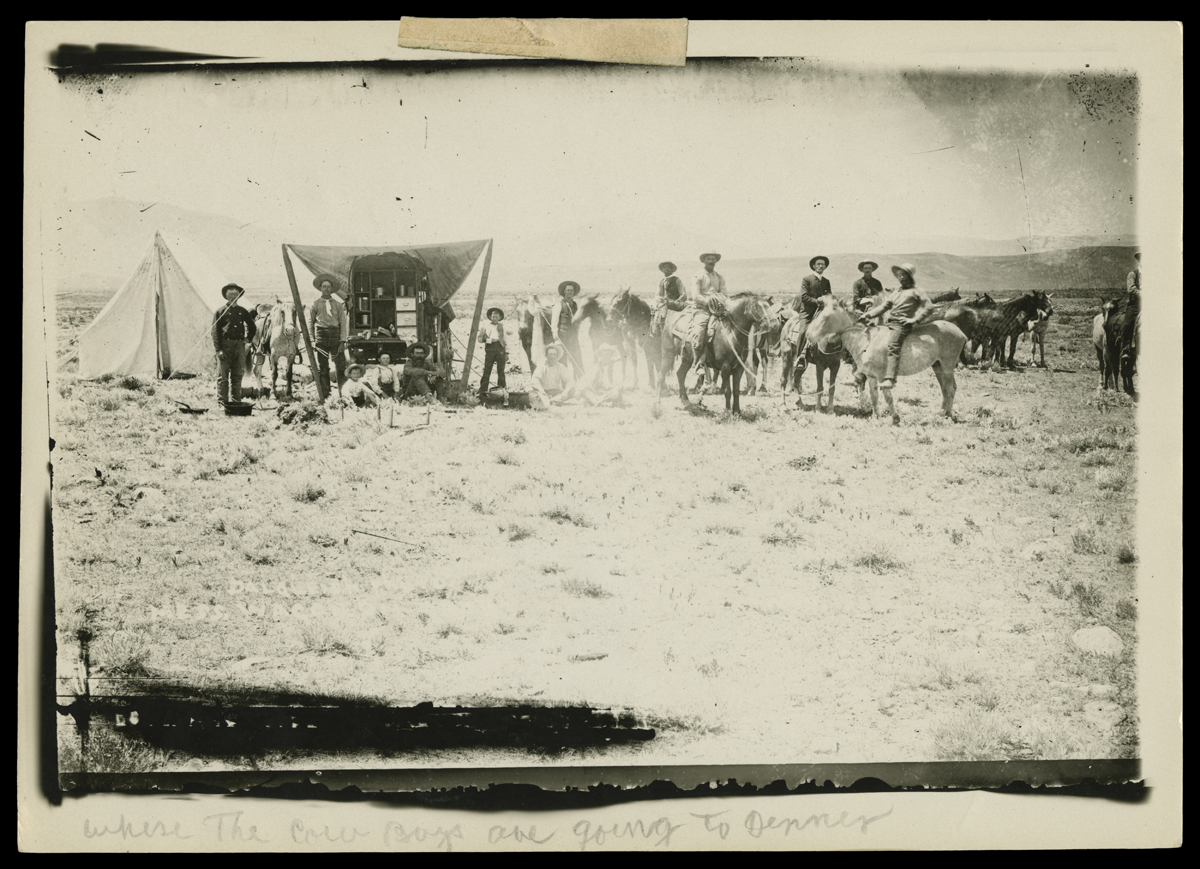
Cowboys at the Chuck Wagon, Crazy Woman Creek, Wyoming Territory, 1885. THF124569
Some people even think that cowboy chuck wagons helped inspire lunch wagons. Here’s a cool scene of a group of cowboys in Wyoming from 1885. Take a look at the fully outfitted chuck wagon in the picture above.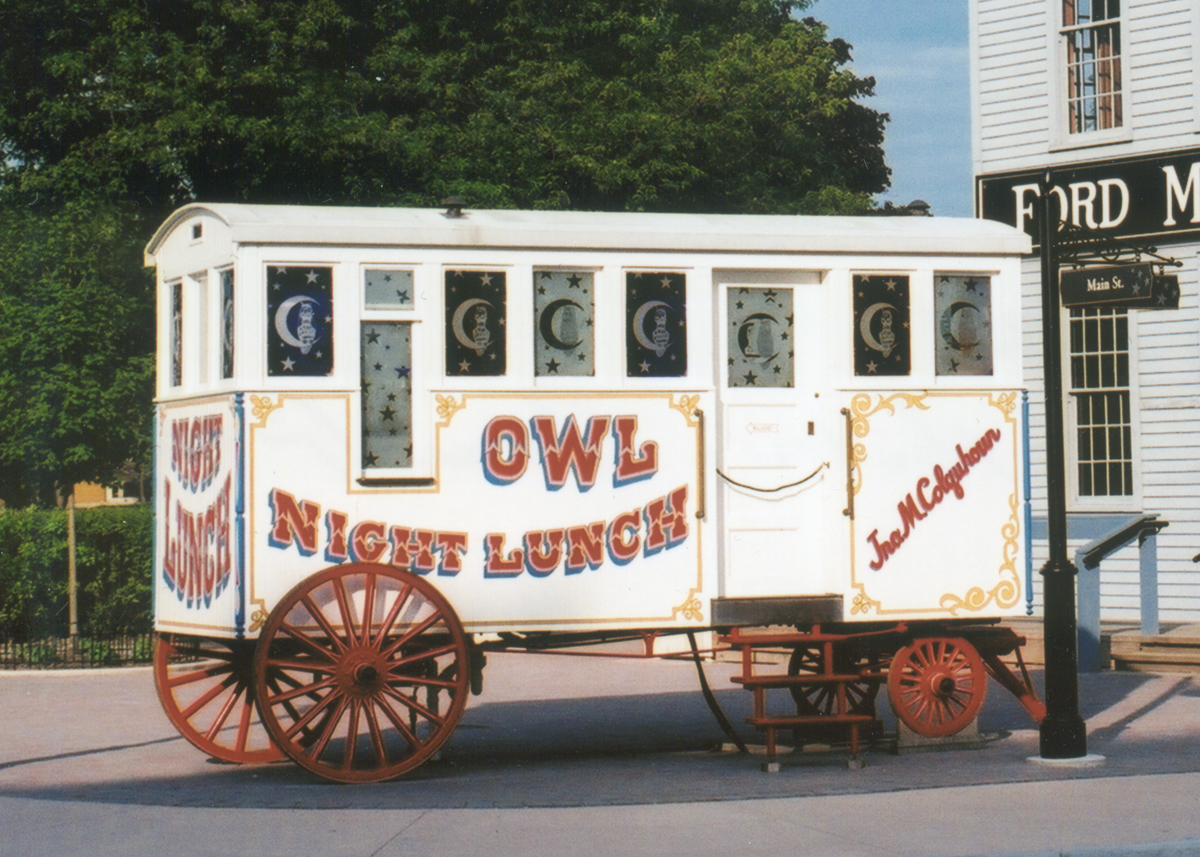
The Owl Night Lunch Wagon. THF88956
The Owl Night Lunch Wagon in Greenfield Village is thought to be the last surviving lunch wagon in America!
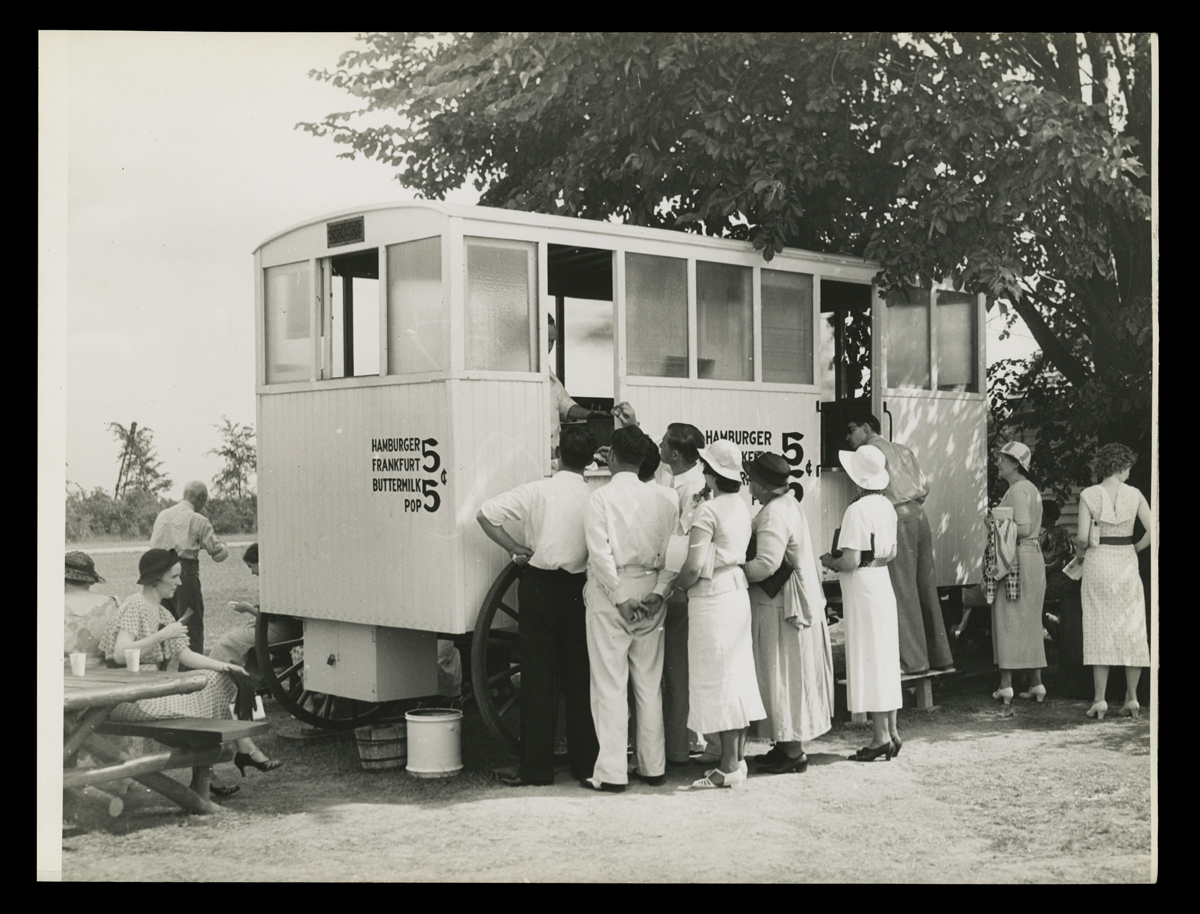
Visitors at the Owl Night Lunch Wagon. THF113945
Henry Ford ate here as a young engineer at Edison Illuminating Company in downtown Detroit. In 1927, Ford acquired the old lunch wagon to become the first food operation in Greenfield Village. Notice the menu and clothing worn by the guests.
In this segment of The Henry Ford’s Innovation Nation, you can watch Mo Rocca and me eating hot dogs with horseradish at the Owl—just like Henry Ford might have done back in the day!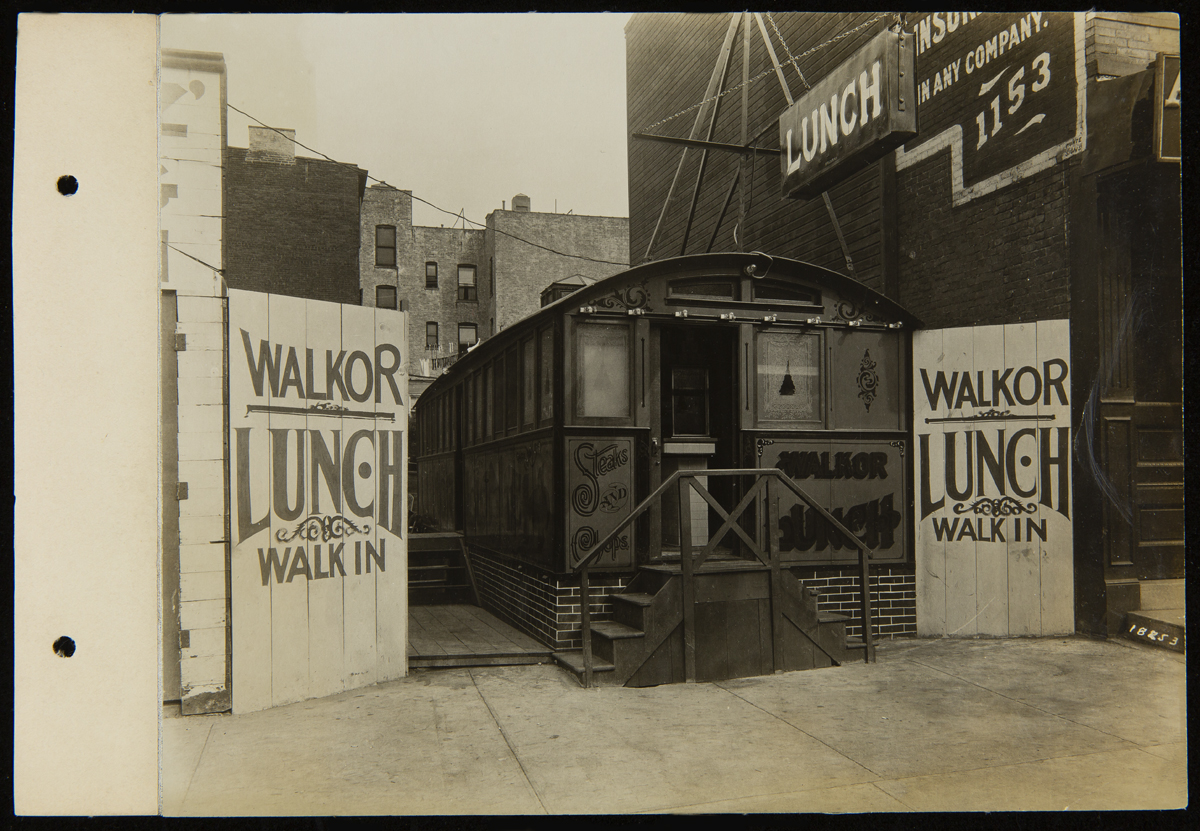
Walkor Lunch Car, c. 1918. THF297240
When cars increased congestion on city streets, horse-drawn lunch wagons were outlawed. To stay in business, operators had to re-locate their lunch wagons off the street. Sometimes these spaces were really cramped.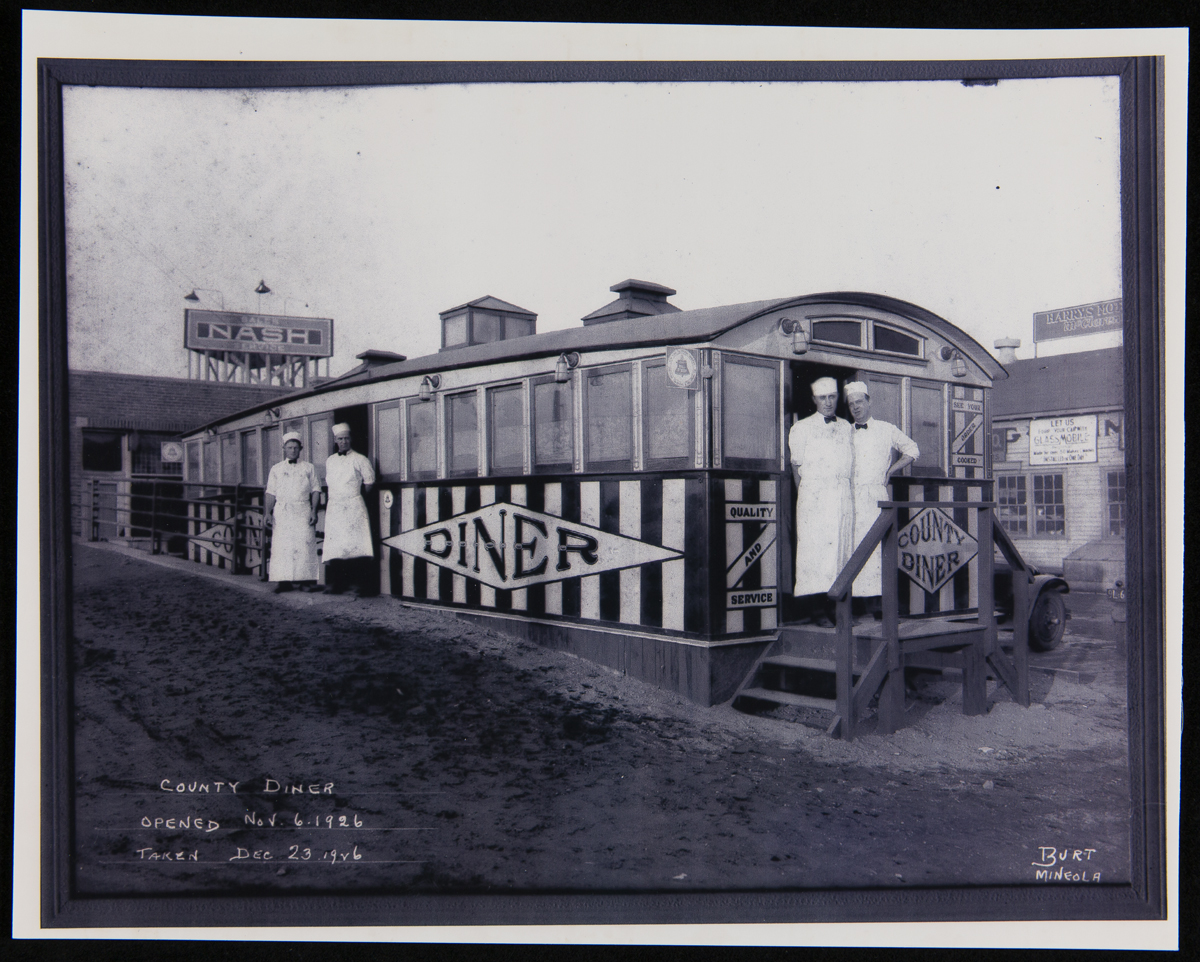
County Diner, 1926. THF297148
By the 1920s, manufacturers were producing complete units and shipping them to buyers’ specified locations. Here’s a nice exterior of one from that era.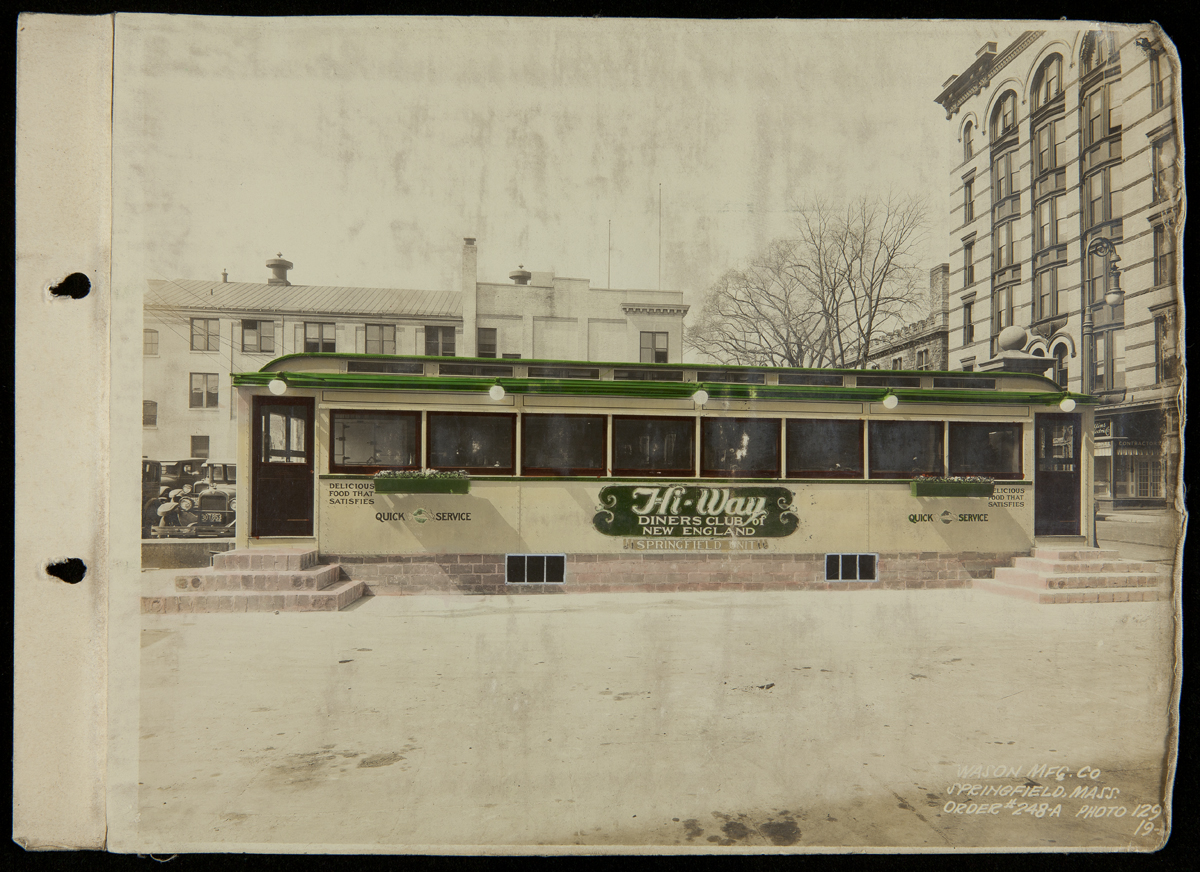
Hi-Way Diner, Holyoke, Mass., ca. 1928. THF227976
These units were roomier and often cleaner than the by-now-shabby lunch wagons. To make them seem more upscale, people began calling these units “diners,” evoking the elegance of railroad dining cars.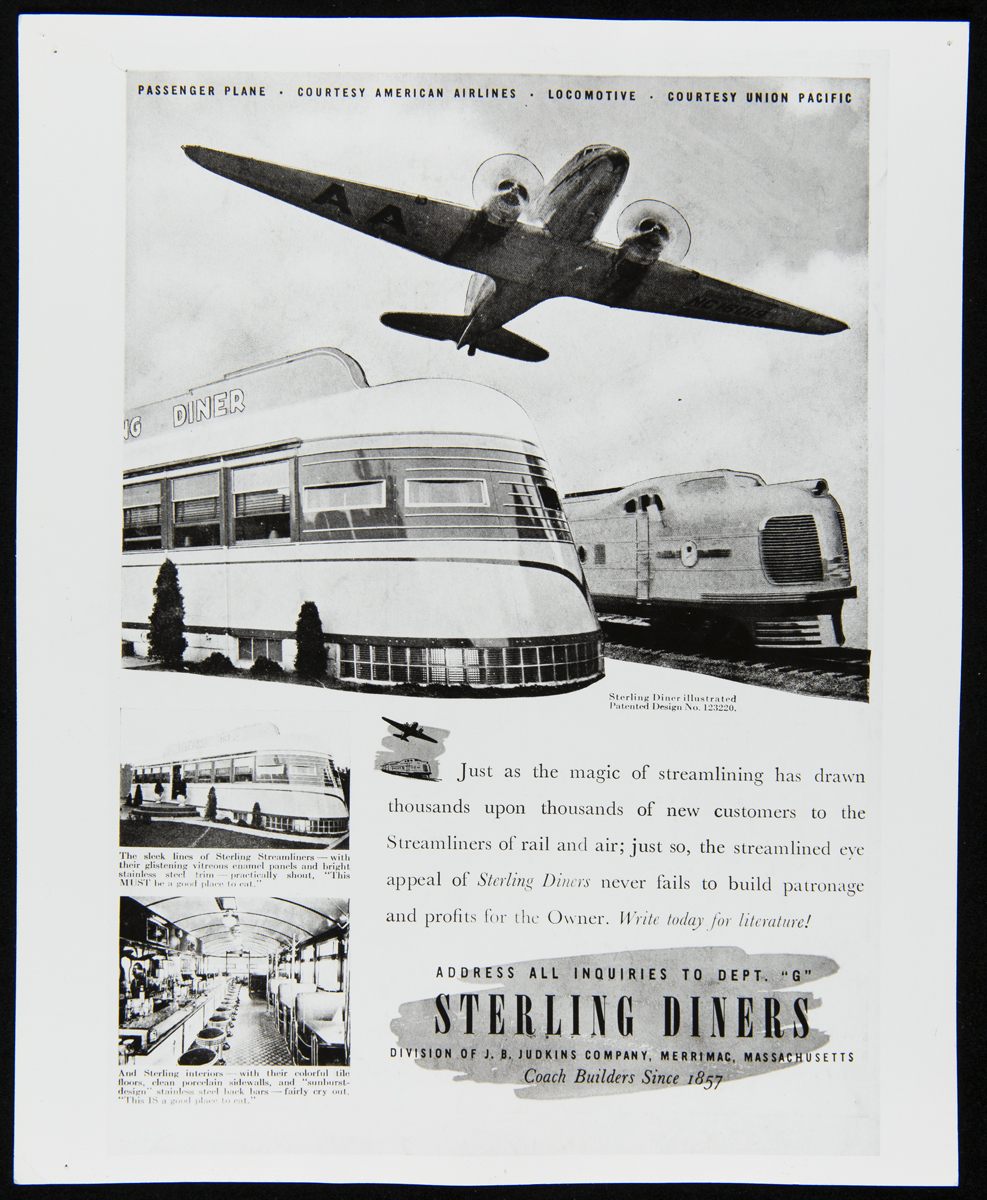
Ad with streamlined diner, railroad, and airplane, 1941. THF296820
As more people got used to eating out in diners, more diners were produced. By the 1940s, some diners took on a streamlined form—inspired by the designs of the new, modern streamlined trains and airplanes.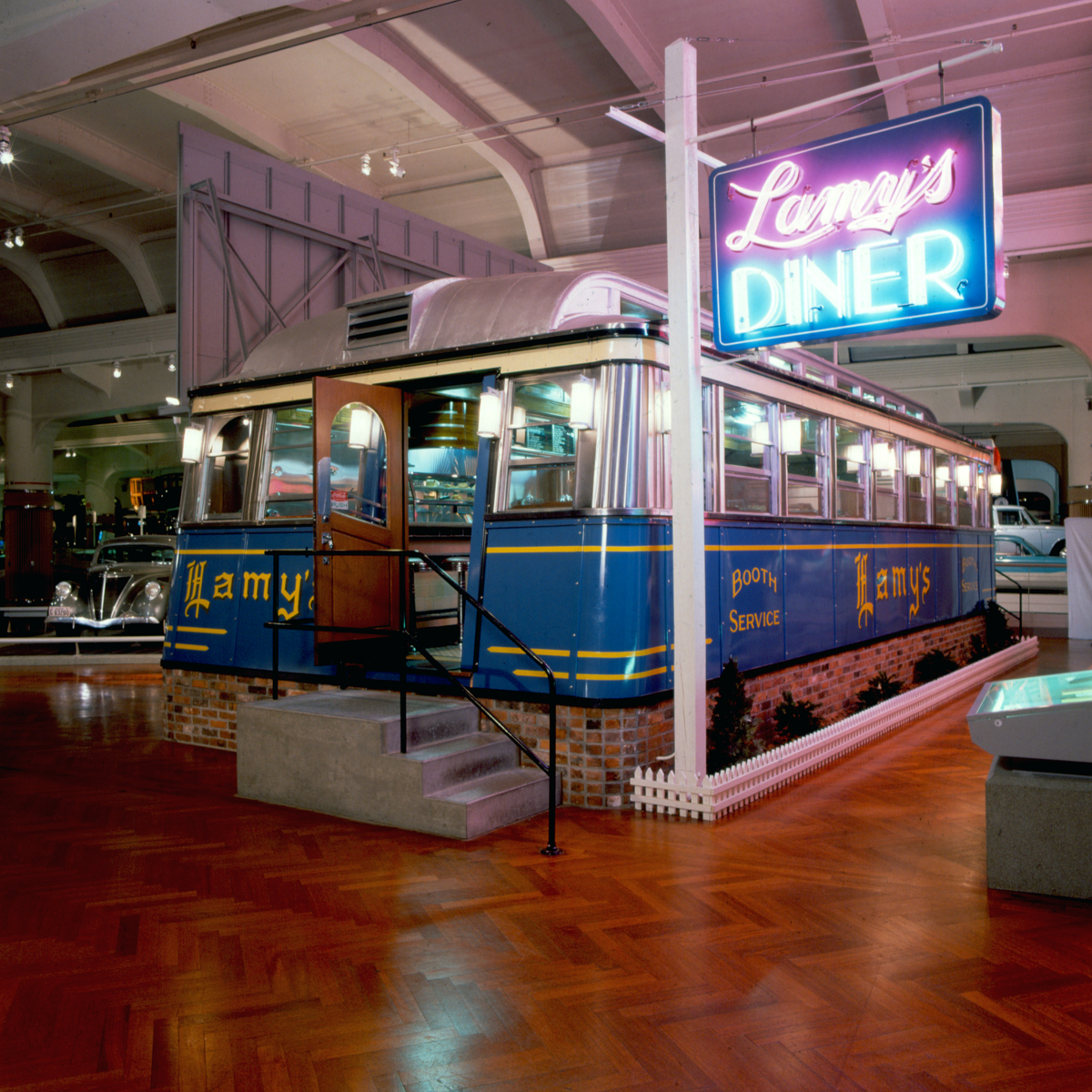
Lamy’s Diner. THF77241
By the 1940s, there were so many diners around that this era became known as the “Golden Age of Diners.” This is where our own Lamy’s Diner comes in. It was made in 1946 by the Worcester Lunch Car Company of Massachusetts. You may not be able to get a cup of coffee and a piece of pie inside Henry Ford Museum of American Innovation right now, but you can visit Lamy’s virtually through this link.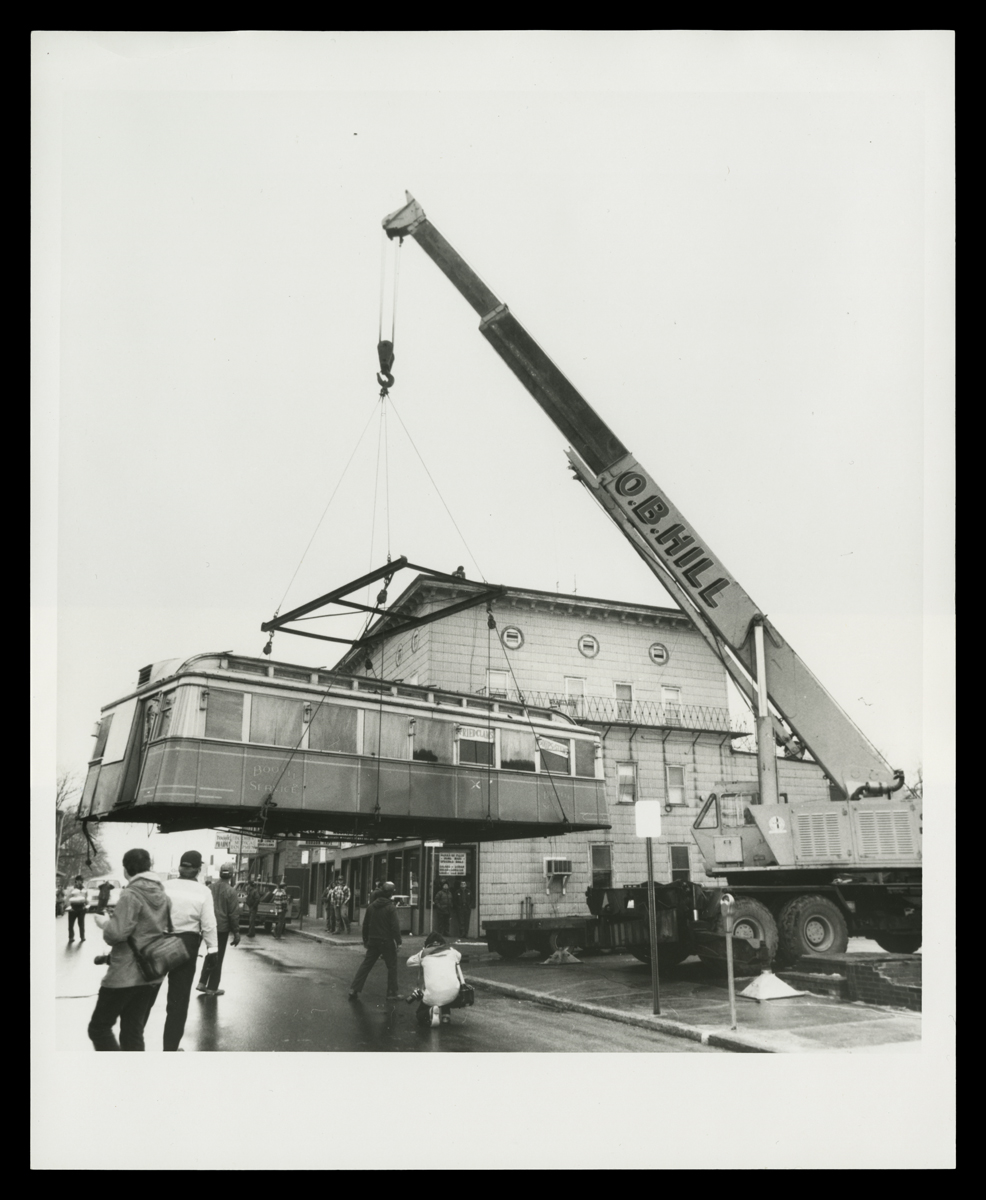
Move of diner from Hudson, Mass., 1984. THF124974
The Henry Ford acquired Lamy’s Diner in 1984, then restored it for a new exhibition, “The Automobile in America Life” (1987). Here’s an image of it being lifted for its move to The Henry Ford.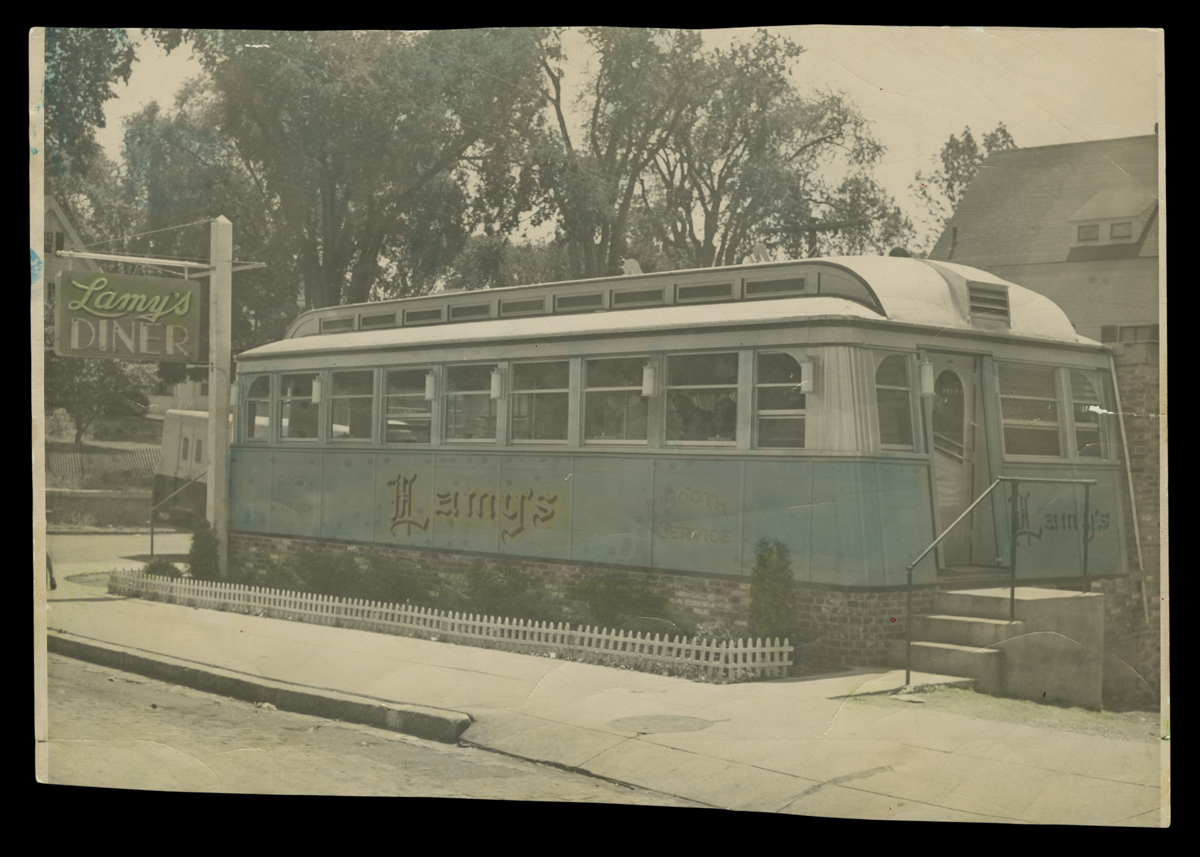
Lamy’s Diner on original site. THF88966
Lamy’s Diner was originally located in Marlborough, Mass. Here’s a photograph of it on its original site. But, like other diners, it moved around a lot—to two other towns over the next four years.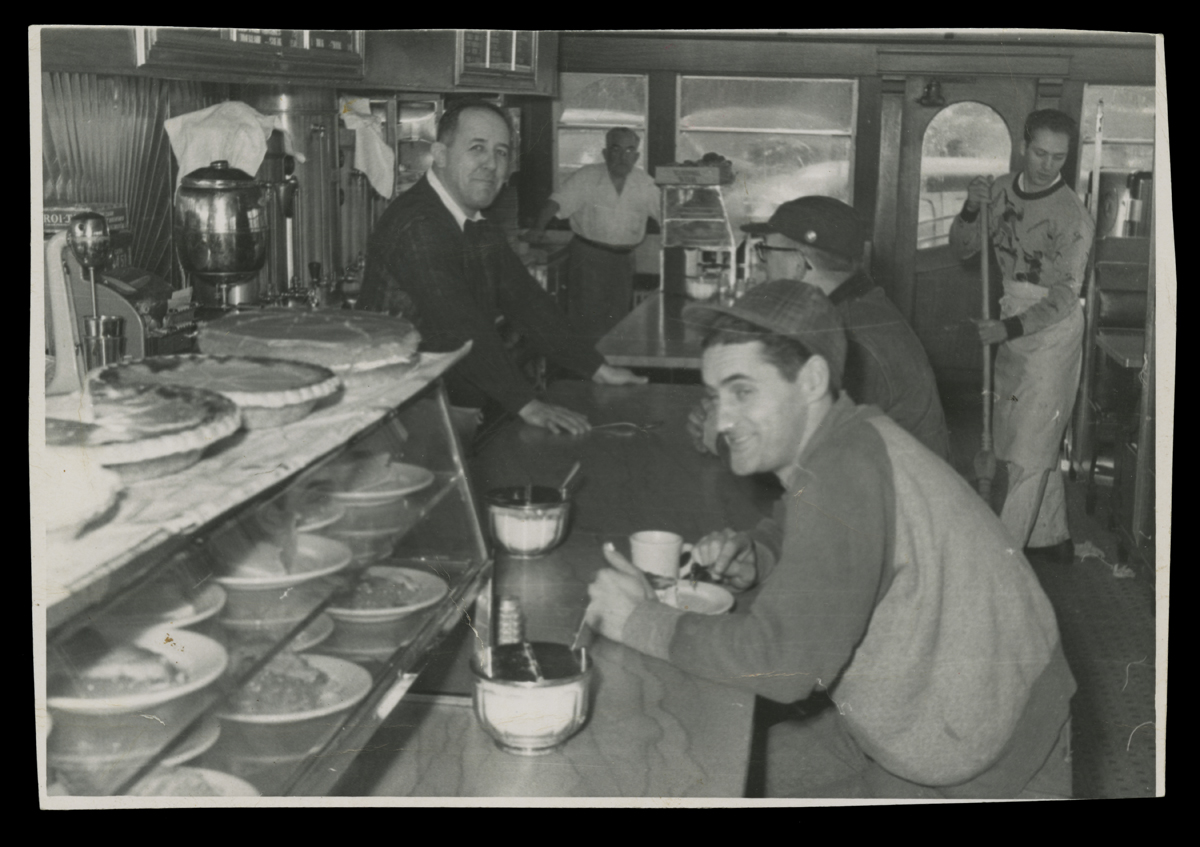
Snapshot of Clovis Lamy in diner, ca. 1946. THF114397
Clovis Lamy was among other World War II veterans who dreamed of owning his own business when the war was over, and diners promised easy profits. As you can see here, he loved talking to people from behind the counter. From the beginning, Lamy’s Diner was a hopping place all hours of the day and night. You can read the whole story of Clovis Lamy and his diner in this blog post.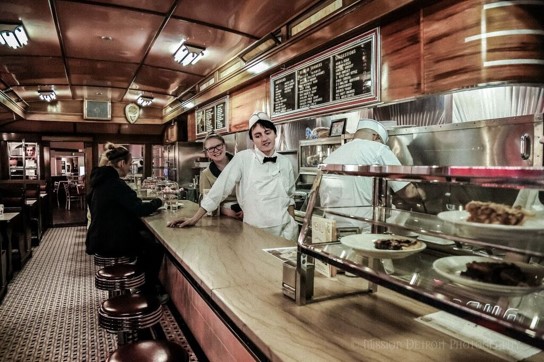
Lamy’s as a working restaurant in Henry Ford Museum of American Innovation.
In 2012, Lamy’s became a working restaurant again—inside Henry Ford Museum of American Innovation. Nowadays, servers even wear diner uniforms that let you time-travel back to the 1940s. A few years ago, the menu was revamped. So now you can order frappes (Massachusetts-style milkshakes), New England clam chowder, and some of Clovis Lamy’s original recipes. Read more about the recent makeover here.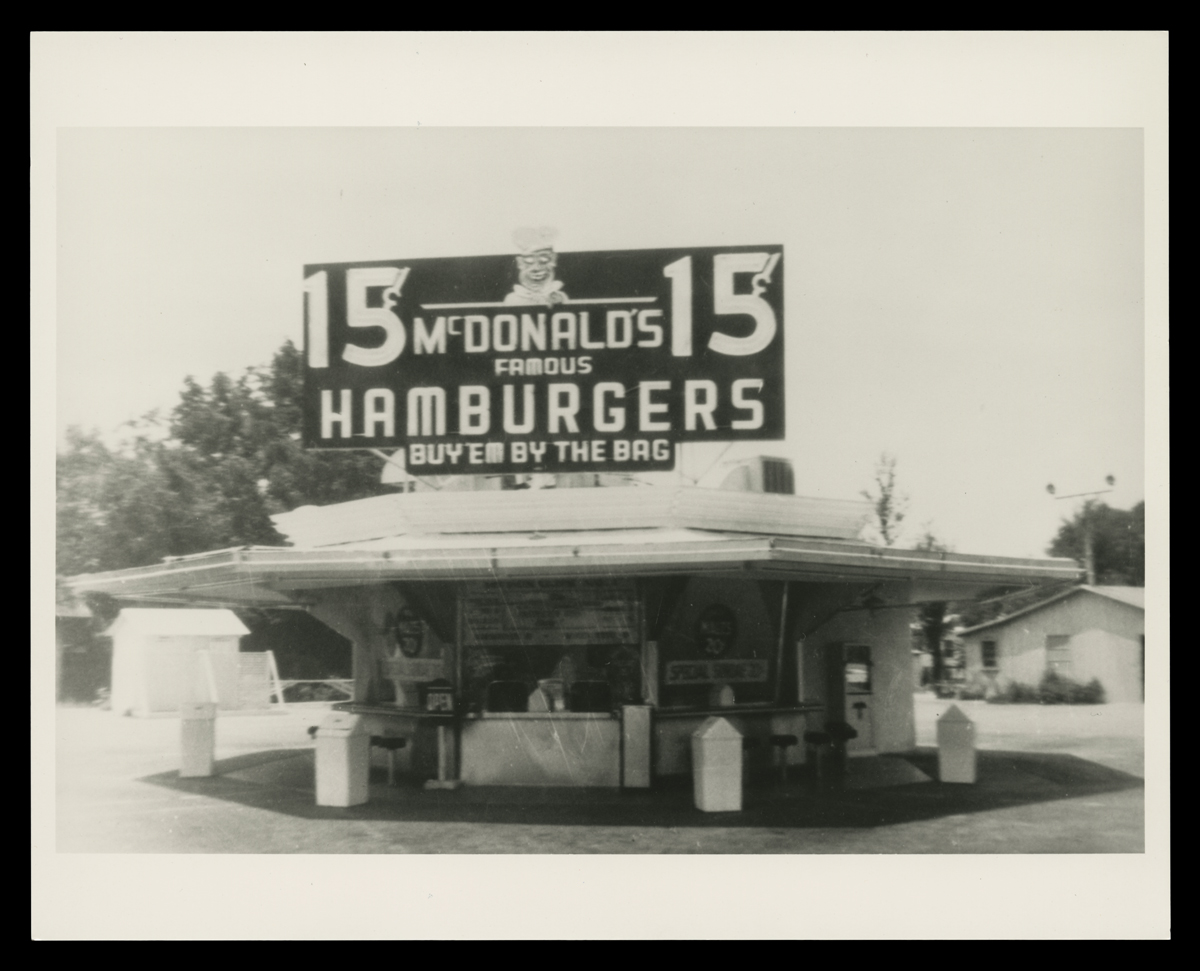
View of a McDonalds restaurant and sign, 1955. THF125822
Diners declined when fast food restaurants became popular. McDonald’s was first, with food prepared by an assembly-line process, paper packaging, and carry-out service. Check out this pre-Golden Arches McDonald’s.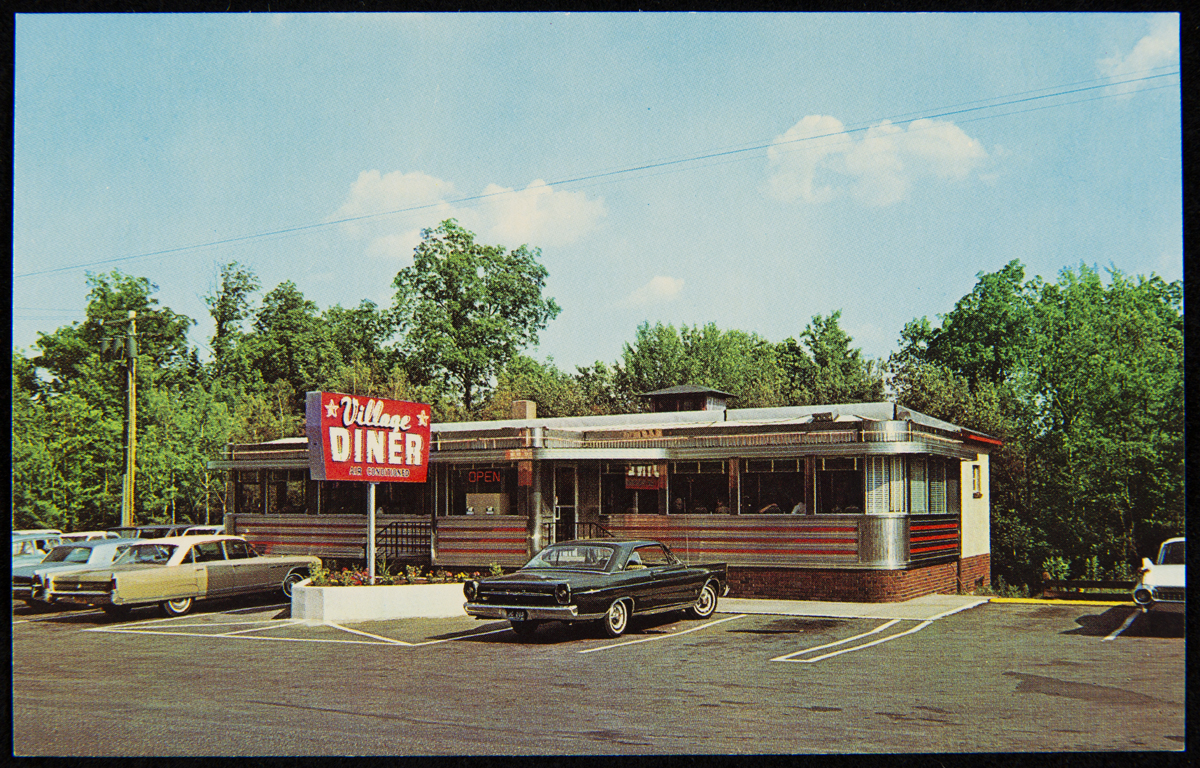
Mountain View steel diner, Village Diner, Milford, PA, c. 1963. THF297276
The 1982 movie Diner helped spur a new revival in diners, as some people got tired of fast food and chain restaurants. Here’s an image of a Mountain View steel diner, much like the one used in that movie.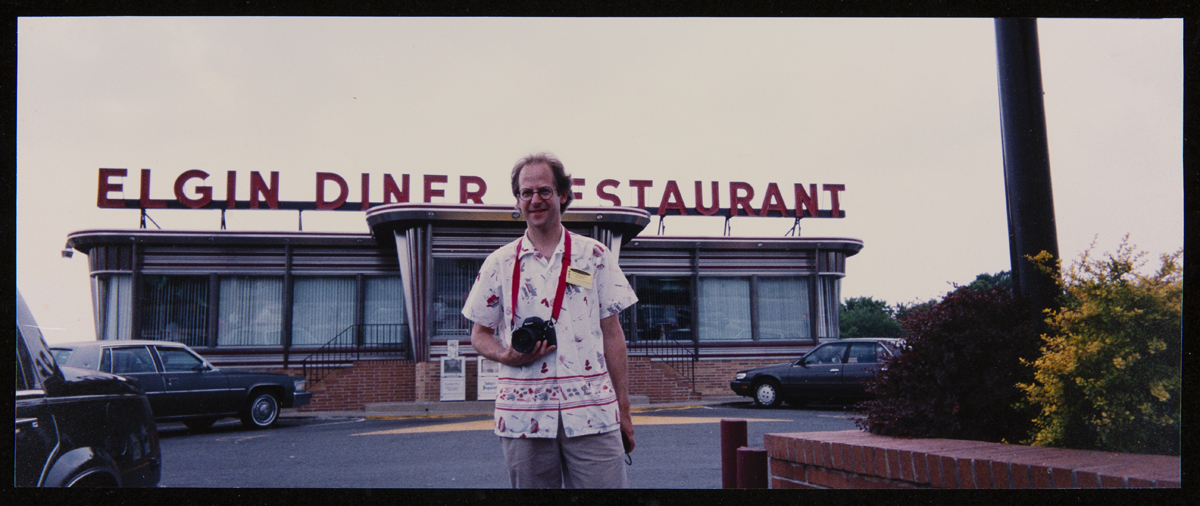
Dick Gutman in front of a Kullman diner, 1993. THF297029
One person was particularly instrumental in documenting and helping revive the interest in diners. That’s diner historian Richard Gutman. Here he is in 1993 with camera in hand—in front of a diner, of course. We are thrilled that last year, Richard donated his entire collection of historic and research materials to The Henry Ford—including thousands of slides, photos, catalogs, postcards, and diner accouterments!
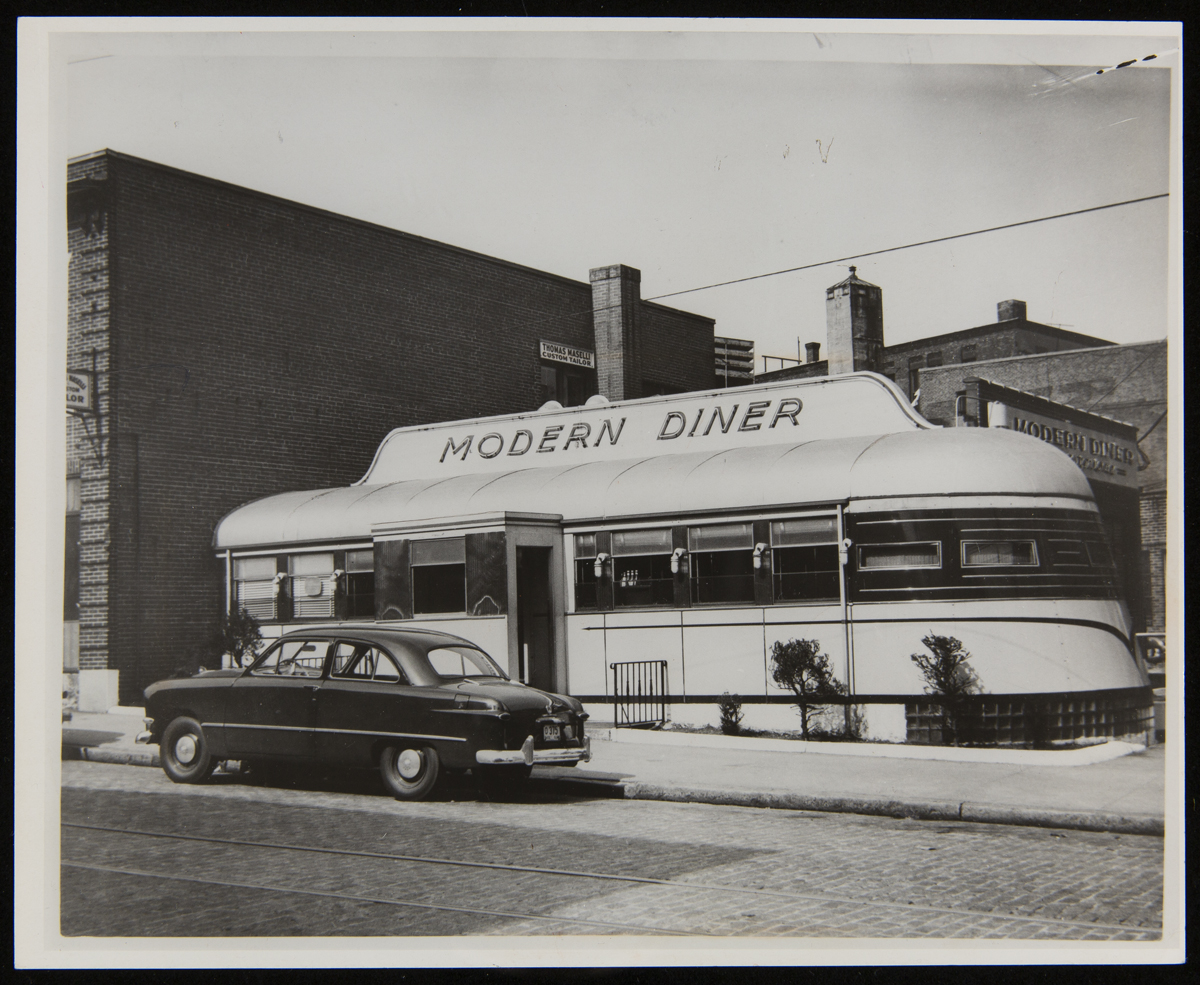
Modern Diner, Pawtucket, RI, 1974 slide. THF296836
Richard not only documented existing diners but helped raise awareness of the need to save diners from extinction. The Modern Diner, shown here, was the first to be listed on the National Register of Historic Places (1978).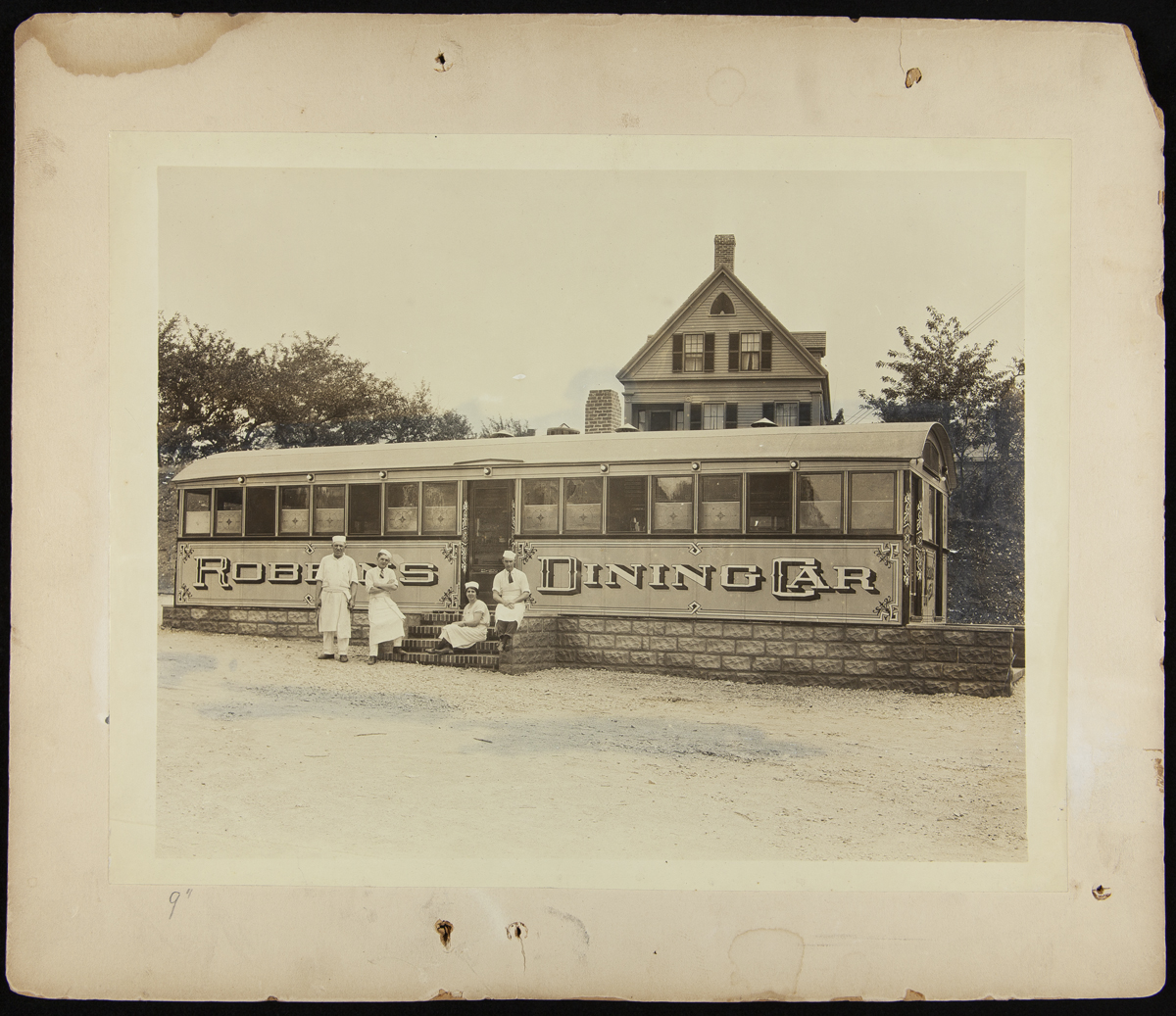
Robbins Dining Car, Nantasket, Mass., ca. 1925. THF277072
Be sure to check out our Digital Collections for many items from Richard’s collection already online.
Diners continue to have popular appeal. They offer a portal into 20th-century social mores, habits, and values. Furthermore, they represent examples of American ingenuity and entrepreneurship that connect to small business startups and owners today.
This post was originally part of our weekly #THFCuratorChat series. Follow us on Twitter to join the discussion. Your support helps makes initiatives like this possible.
Additional Readings:
Keywords | |
|---|---|
Series |
